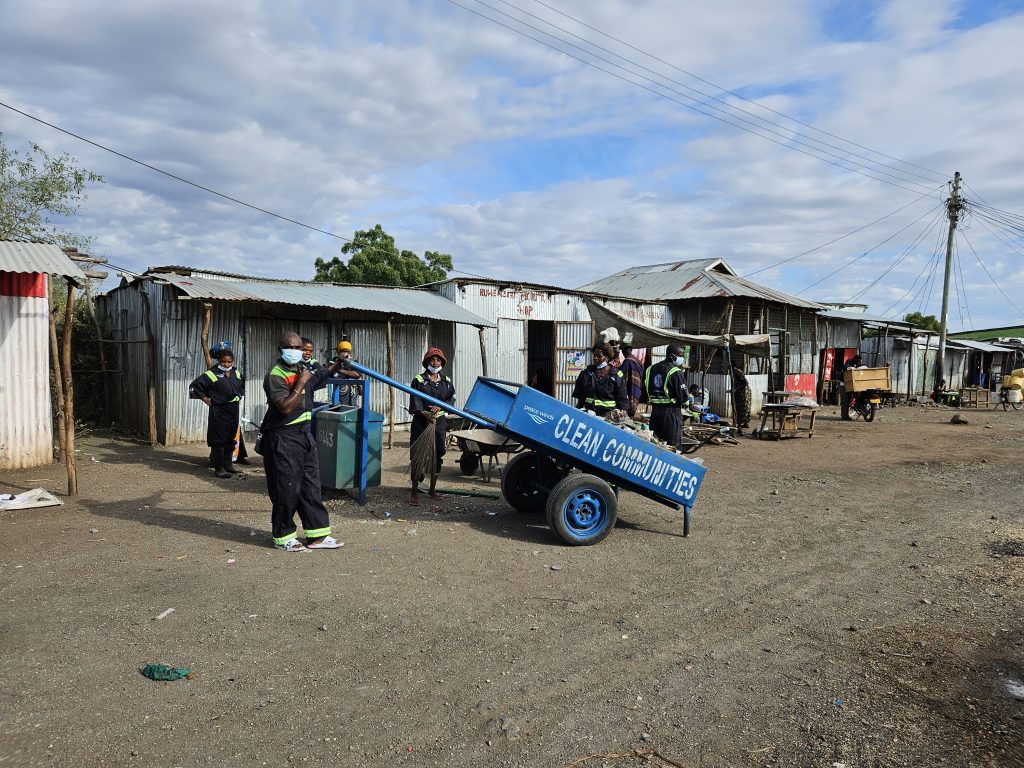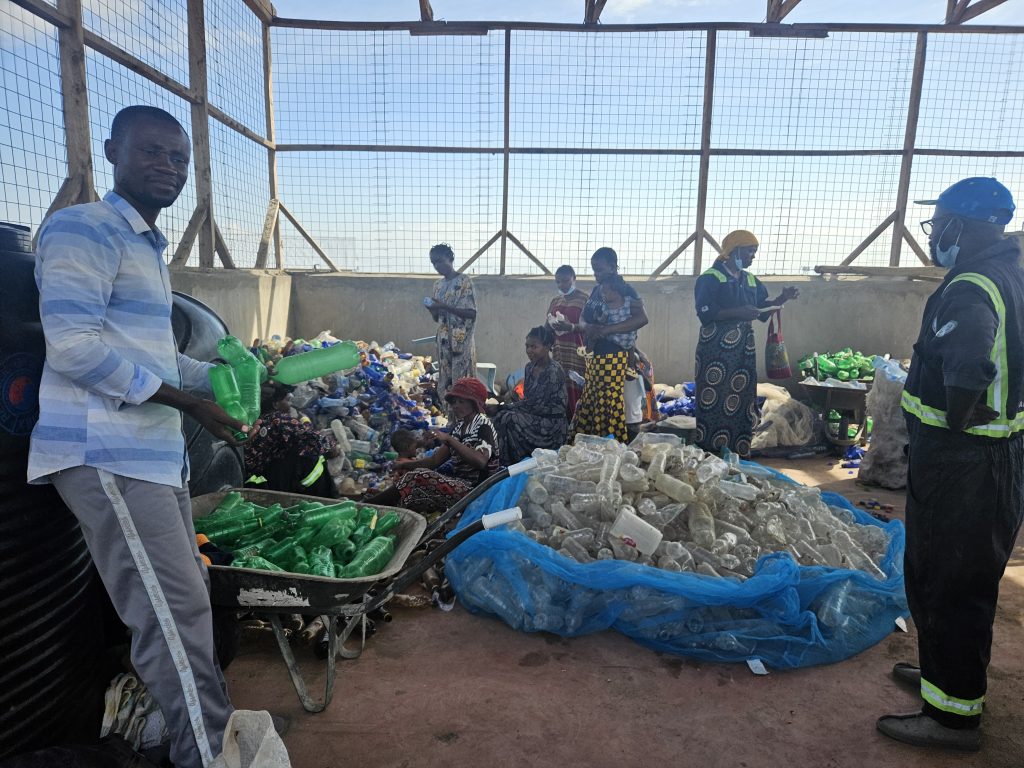Building a Market for Recycling and Sustainable Waste Management in Kenya’s Refugee Camps
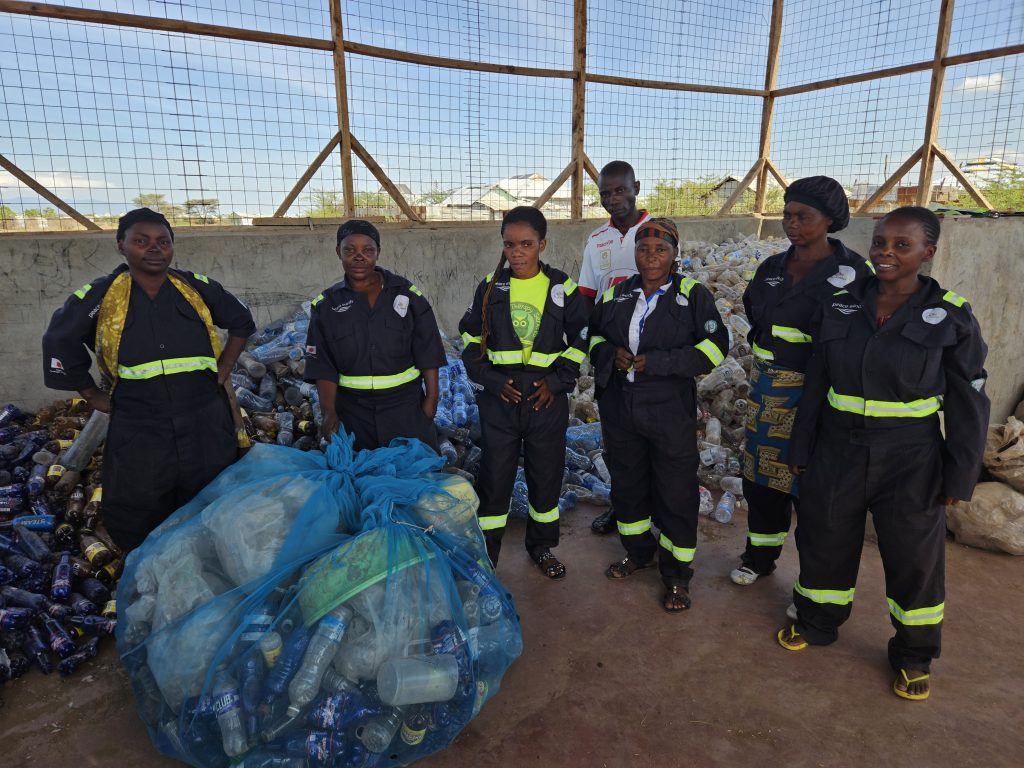
The Peace Winds team in Kenya is halfway through an ambitious three-year initiative to stand up a community-based recycling initiative for the roughly 320,000 refugees and local residents living in and around Kakuma Refugee Camp and the nearby Kalobeyei Settlement. Kakuma, which means “nowhere” in Swahili, is located in a desolate, desert-like area of Northeast Kenya, close to the South Sudan border. Since its opening in 1991, it has swelled to become one of the largest refugee camps in the world, housing South Sudanese, Somalians, Burundians, Congolese, and many other nationalities.
Peace Winds staff are in charge of managing all water, sanitation, and hygiene (WASH) functions in the camp and, as part of their duties, they are trying to find a better way to dispose of the roughly 184 tons of waste that are produced every day. This garbage was often just dumped in large, rotting piles and eventually hauled away to be discarded elsewhere, but that was clearly unsustainable. So, Peace Winds has drawn inspiration from the Japanese town of Osaki, which has garnered global attention for managing to recycle more than 80 percent of all of its garbage.
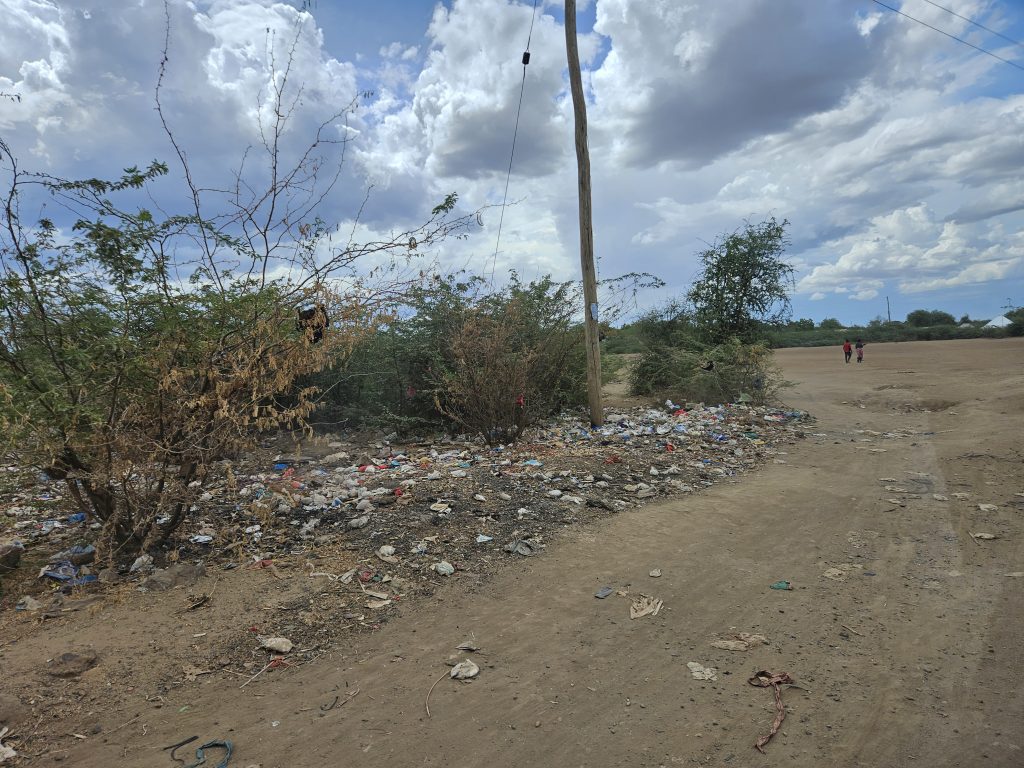
Standing up a recycling system in a remote area like this is a massive challenge and requires starting from the ground up, which is what Peace Winds is doing with funding from the Ministry of Foreign Affairs of Japan. As an initial step, Peace Winds helped organize a coalition of 10 pre-existing community-based organizations (CBOs) to manage garbage collection and processing in the different neighborhoods of Kakuma Refugee Camp, Kalobeyei Settlement, and the surrounding town. Peace Winds gave the nearly 400 CBO members uniforms and safety apparel; provided handcarts, wheelbarrows, and motorized tuktuks to haul garbage; and distributed equipment such as rakes, shovels, and buckets. Peace Winds also set up collection points by distributing almost 1,000 portable garbage bins and fixed metal receptacles. It then facilitated the negotiations of some of the CBOs with local market associations and business to pay fees for garbage collection, and it has continued to provide training and support to the organizations to help them become financially self-sustaining.
A second piece of the puzzle involved building 13 waste transfer stations throughout the community where the CBOs could bring recyclables to be sorted. The CBO members separate out metals, glass, and plastics and then sort the ubiquitous plastic bottles by color, often removing the bottle caps and labels for easier processing. In addition, several have set up pits to compost the food waste they collect. The CBOs have started to sell scrap metal and the compost they produce, which is bagged to be used as fertilizer for refugees’ home gardens. This yields some profits that can be used to give modest payments to the refugees and local residents that work as members of the CBOs.
However, the biggest challenge involves plastic and paper waste. There are several plastic recycling companies around Nairobi, but these are a grueling 12-hour drive away. It also involves transporting the plastic waste through eight different counties, each of which assess their own sales tax on the cargo. That drastically reduces the rates that recycling firms are willing to pay for Kakuma plastics, so they only dispatch trucks to Kakuma a few times a year, not enough to handle even a fraction of the plastics being collected.
To overcome this, Peace Winds will next build a Materials Recovery Facility to process the plastics from the region. This will grind the bottles into pellets, which can more profitably be transported to recyclers. The Peace Winds team is also exploring whether the pellets can be reprocessed in the region into construction materials—which are in high demand due to deforestation—or used in other ways that eliminate the need to transport them long distances. Peace Winds is also looking into utilizing the facility to compress and bail paper and cloth waste for sale to recyclers as well. The end goal is to create a functioning market for recycled materials in Turkana County, where Kakuma is located. This will allow the CBOs to receive fair payment for the recyclables they collect, allowing them to provide a steady stream of income to their members while helping make the recycling ecosystem self-sustaining. If successful, this can be a model for refugee camps around the world, where pollution and garbage disposal too frequently become major problems.
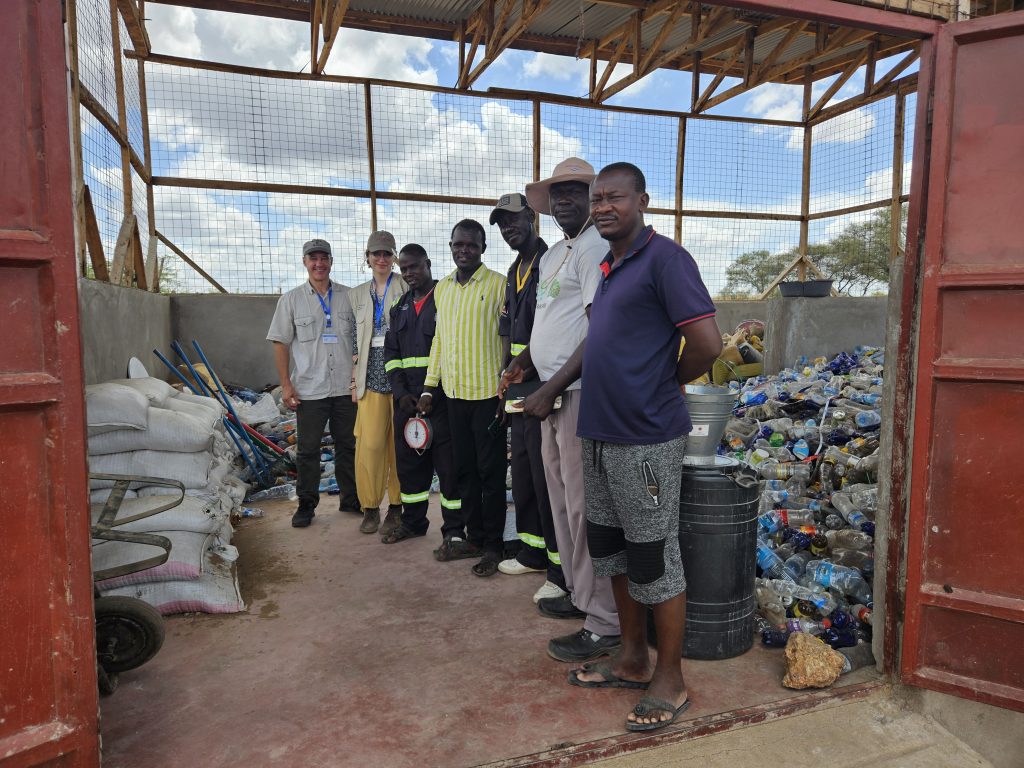
Peace Winds is the lead implementing agency for all Water, Sanitation, and Hygiene (WASH) in and around Kenya’s two massive refugee camps in Kakuma and Dadaab. In addition to garbage collection and recycling, Peace Winds programming includes operating water supply systems and ensuring safe access to water; maintaining public toilets and helping refugees install their own latrines in their personal shelters; educational programming and support for menstrual hygiene management, personal health and hygiene, and other initiatives. (Read about the success of one of Peace Winds’ innovative efforts to change behavior and greatly improve sanitation in Kakuma Refugee Camp here.) Peace Winds also maintains the fleet of vehicles for UNHCR and other humanitarian agencies, and carries out livelihoods, shelter, protection, and gender-based violence prevention programs in Kenya’s refugee camps.
